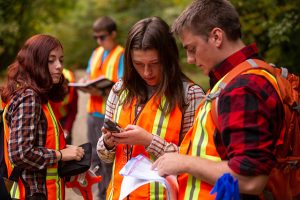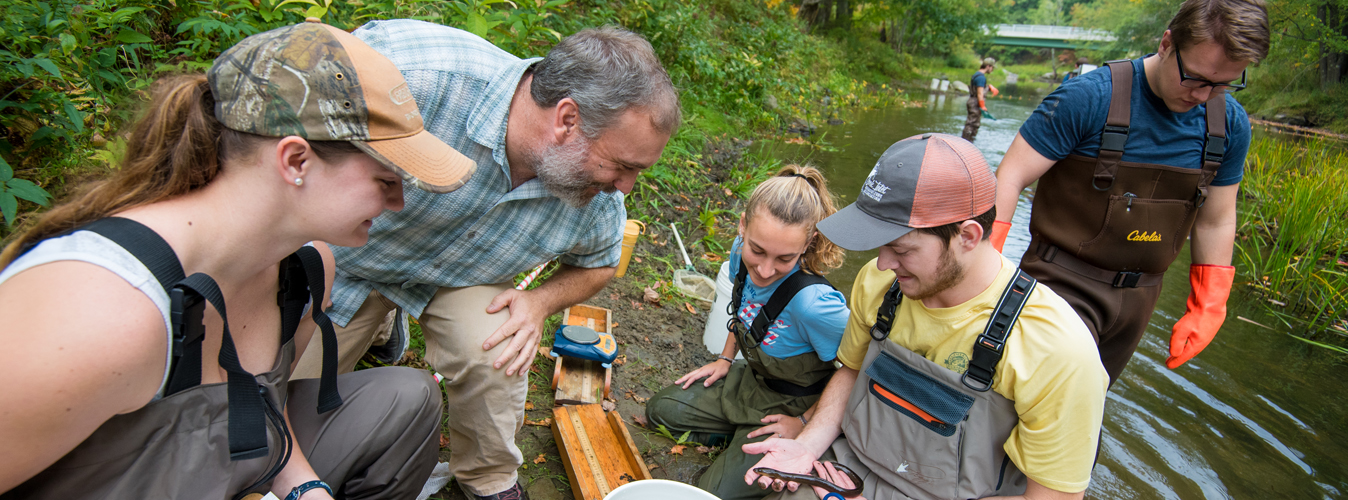TERRAIN at Unity College re-envisions the curriculum for students in the first two years of college
For decades, students have been introduced to the college experience in the same manner, from the move-in process to the first two years of the curriculum. Most colleges and universities welcome Generation Z almost exactly as they did with baby boomers, Generation X, or Millennials, even though students today are vastly different than they were fifty or sixty years ago.
National data shows that today around 30 percent of students who begin attending a four-year college will drop out after their first year, that anxiety and depression are on the rise for college students, and that there is an increasing demand that students have job-ready skills as well as a strong education when they receive their degree and enter the next chapter of their lives, whether that’s starting a career or going to graduate school.
Unity College has spent years reviewing national trends and the needs of current students, and in response has introduced TERRAIN at Unity College. Faculty and staff spent two years developing the co-curricular activities that have become TERRAIN at Unity College, gaining insight from students on how they want to learn, as well as employers on the skills they seek in ideal employees.
This fall, more than a quarter of incoming Flagship students chose to take part in a TERRAIN testbed, and beginning in the fall of 2020, all incoming students will take part in TERRAIN, as it will be the new way the College delivers its Flagship curriculum.
“We listened to the challenges that students face in the first two years of college, to industry leaders in the green economy who hire our students, and did extensive research, which found that TERRAIN would revolutionize our curriculum and appeal to residential students who want to learn career-focused skills beginning the first day they enter Unity College,” said Unity College President Dr. Melik Peter Khoury. “TERRAIN allows students to explore a range of professional opportunities, which will help them build the foundational skills for their careers and graduate school.”
So what does TERRAIN look like?

TERRAIN uses Expeditionary Learning as its educational model, creating innovative courses where students receive comprehensive, relevant, and outcome-based opportunities to build or retool their knowledge and professional skills in sustainability fields. TERRAIN brings an integrative approach to learning, allowing students to learn where they live in Expeditionary Communities. Cohorts of students share academic experiences and projects in addition to social and recreational opportunities centered around a theme or real-world challenge.
In TERRAIN, students will take part in multi-day excursions to locations across the state and the country, to put their knowledge to practice in diverse contexts. They’ll learn where they live, with speakers and field experts visiting to teach them in a setting that is conducive to exploring real-world ideas and concepts that can make a difference. They’ll work with tutors in their residence hall, develop and practice leadership skills, and collaborate within their Expeditionary Learning Community to explore issues and tackle challenges.
In the first week at Unity College, Savannah Sedivy, a first-year Marine Biology major who opted into the Fall 2019 testbed, joined roughly thirty students from the Expeditionary Community that she is a part of, on a three-day expedition to Sky Lodge in Maine’s Moose River Valley. There, Savannah and members of her cohort learned how to effectively map, use a GPS and compass, set up grids for surveys, and how to hike purely using sound.
“Learning those practical skills that I can apply to my major first before I settle down into a desk with a textbook was my main goal,” said Sedivy. “Being stuck in a general classroom, even if you’re using real-world examples, doesn’t compare to actual real-world experience. With these intertwined classes, TERRAIN has pointed me toward skills that I’ll use later in life, or even the very next day.”
In addition to internships, practicums, and short courses offered year-round, TERRAIN’s four-quarter academic calendar allows students to engage in a robust residential college experience while having the flexibility for work, family commitments, and career opportunities. If a student wants to accelerate their education and earn a bachelor’s degree in fewer than four years, TERRAIN gives them that option, or if they need to take time off for any reason, they can do that as well.
“Currently, students build new knowledge in isolated contexts, in individual discipline-based courses. But our mission requires us to prepare environmental problem-solvers and leaders ready to tackle sustainability challenges. These are complex, multi-disciplinary problems. It is essential that our students are ready to employ their knowledge and skills in novel situations,” said Dr. Jennifer Cartier, Dean of the School of Environmental Citizenship at Unity College. “The other very compelling reason to reimagine undergraduate education is simply that we need to respond to our students. We have an obligation to give them what they need and what they and their parents value.”
For more on TERRAIN at Unity College, visit unity.edu/terrain-at-unity-college/.






